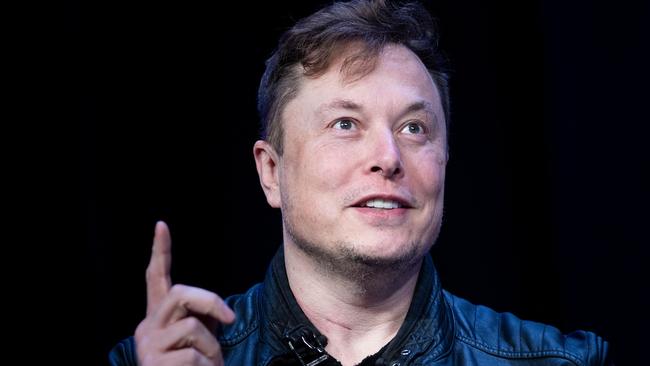Kanye, Hitler, and why his music must play on

It was after the comedian Dave Chappelle appeared on Saturday Night Live that I started to worry. He was responding to the rap star Kanye West’s promise to “go Defcon 3 on the Jews”.
It was cleverly done. While talking about Hollywood Jews, he inserted into his monologue, for instance, the statement that “there’s a lot of black people in Ferguson, Missouri – it doesn’t mean we run the place”. Chappelle was deft but his point was unmistakable. The error West made was telling the truth. The idiot. Doesn’t he know there are a lot of Jews in Hollywood?

The audience laughed. Like, a lot. And not just those in the theatre. When I went to read the comments on YouTube, I expected to find at least a substantial minority angered by Chappelle. Instead there were tens of thousands of people saying he was a legend and should be invited back every week. As far as I could tell, not a single commenter had a problem with it.
It wasn’t long before West (who has changed his name to Ye) was praising Hitler and denying the Holocaust. And even this, an obvious extension of his Defcon threat, doesn’t seem to have prompted anyone involved to wonder about Chappelle’s monologue.
I say all this because I think West’s Nazi pronouncements provide a useful way to investigate the issue of free speech and offensiveness. Are there universal principles that can help us settle the rows over so-called “cancel culture"?
What West had to say was offensive to me, obviously. Chappelle’s monologue also shows that West matters. His comments seep into the mainstream. And people laugh but not at him, at the Jews. From personal experience, therefore, it is a good test case.
So here’s what I think. First of all I don’t believe what West said should be illegal. However repulsive, it shouldn’t be illegal to deny the Holocaust or say that Hitler got some things right. Direct violent threats should be outlawed, but not political or historical observations, however wayward. Freedom of conscience and expression is vital, and a more important protection for minorities than making West an outlaw.
Does that mean Twitter’s bosses should ban him? It’s really up to them. It is a private company. It isn’t under any obligation either to allow his content or not to. It would, after all, be an infringement of Twitter’s freedom of expression to force it to host West’s remarks. But if it wishes to, it should be allowed to.
I’d go further. I’m glad Elon Musk took the decision to remove West from the platform.
I think Musk’s original ideas of free speech absolutism on Twitter were naive. Believing West should be legally permitted to express any opinion he wishes doesn’t mean I wish to be in a conversation with him. Nor that I wish to participate in a forum with thousands of antisemites, Holocaust deniers and Jew baiters. Their presence would make (and has at times in the past made) Twitter deeply unpleasant.
So, ultimately, Musk has to decide what sort of forum he wishes to host and who he wants to make money from. And I am glad if he’s decided he’d rather have Jews on his site than Nazis, and that he would rather not monetise Holocaust denial.
What, though, about Adidas? The sportswear manufacturer had an arrangement with West to sell sneakers branded Yeezy. It terminated it once he revealed his tastes ran more to jackboots.

It’s even more straightforward than it is with Twitter to assert that it was within its rights. It isn’t infringing West’s freedom to say what he likes. It is asserting its own freedom not to sell shoes with him. And I’m pleased it is doing so, since I wouldn’t want it to be a happy partner of someone publicly promoting Hitler. Yet this leaves the most difficult question of all. Should streaming services such as Apple Music or Spotify continue to host West’s music? This seems to involve the same principles that apply to Twitter and Adidas: they are free to do what they like, but they shouldn’t be making money out of collaborating with a Nazi. Ronald Lauder, the president of the World Jewish Congress, has duly called for his music to be removed.
And I don’t think I agree.
West is a pioneering artist. Unlike his sneakers and his tweets, his music is of major importance. And the art should be allowed to speak for itself. The same principle that applies to Wagner – whose antisemitism was marked – applies to West’s output. People still listen to Michael Jackson despite all we know about his behaviour. They sometimes do it by denying what he did, which I regard as virtually impossible. It would be better to admit frankly the defective character of great artists, to be repulsed by it, but to accept that the art lives on.
And I deal with the obvious contradictions like this: common sense and a sense of proportion. There are no bright lines and absolutes. Everything is a judgment. There are no simple principles that allow us to decide what we should “cancel” and what we should allow. Each case differs. Not just the gravity of offence, or supposed offence, but also the weight of the art and of the words.
I think we ought to push what we allow to be said to the limit. That we ought to be as robust as we possibly can be in defence of free speech. That we ought to take great care before yielding to claims that words make people feel unsafe. I certainly worry we give in to this assertion about harm far too often. I often believe it fails the test of common sense. But that can’t mean there are no limits at all. No one actually thinks that when they are pressed. As Musk showed over West.
I can’t defend my view of West’s music with anything other than the assertion – one that is inevitably subjective – that to remove it from Spotify would be disproportionate. But subjective will just have to do.
It’s the reason why the rows over free speech will always be so hard fought and difficult to resolve, because they depend so much on judgment, and judgment differs.
We keep hoping we will find some clean, simple principle that will tell us how to act. And we won’t.
– The Times






“OK, I don’t think Kanye is crazy at all, I think he’s possibly not well. I’ve been to Hollywood. And I don’t want y’all to get mad at me, I’m just telling you this is just what I saw. It’s a lot of Jews. Like, a lot … you could maybe adopt the delusion that the Jews run show business. It’s not a crazy thing to think. But it’s a crazy thing to say out loud in a climate like this.”